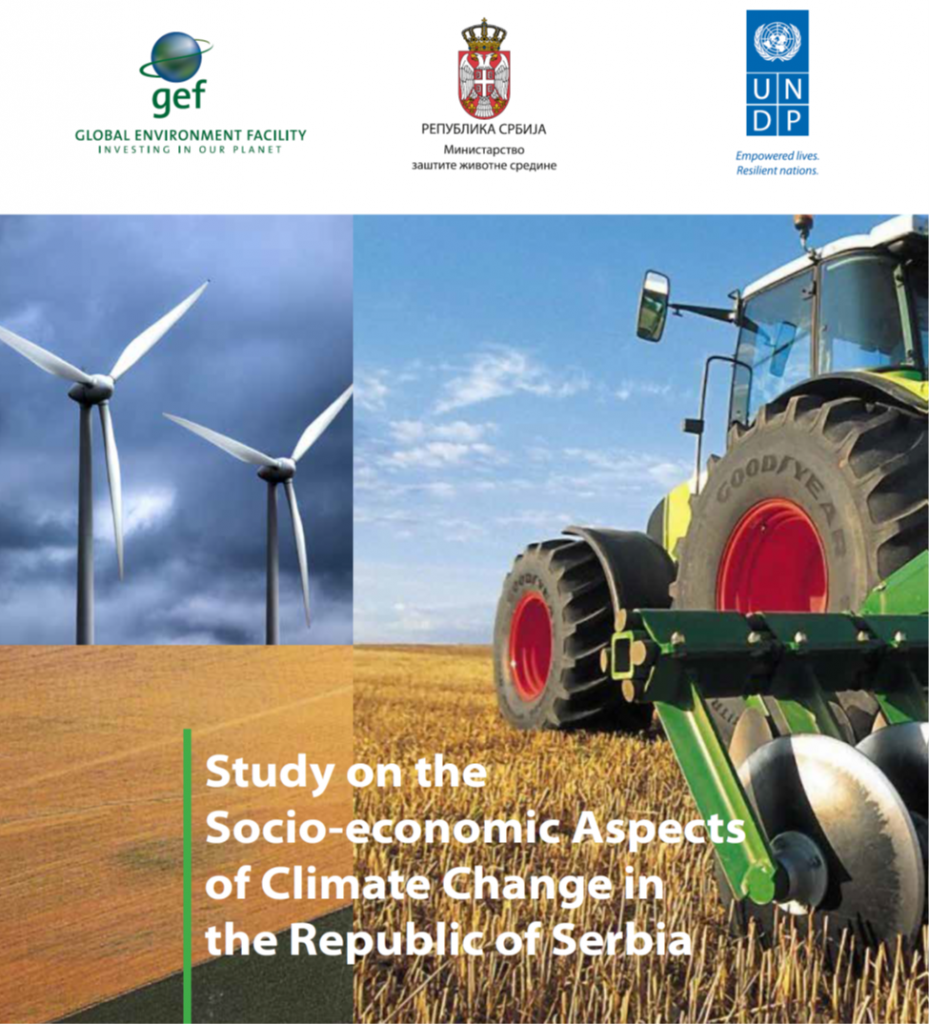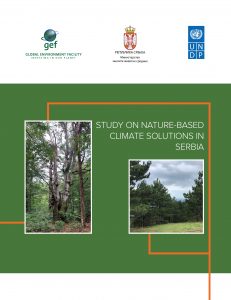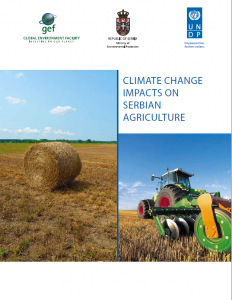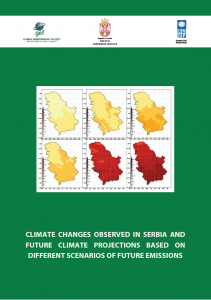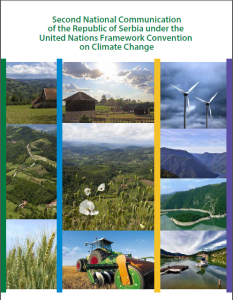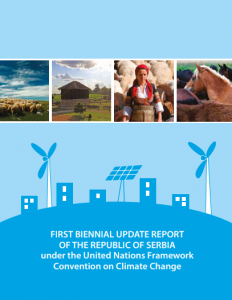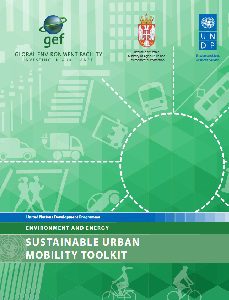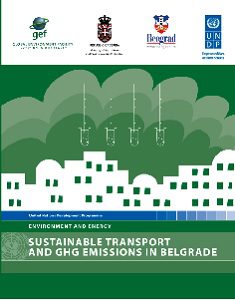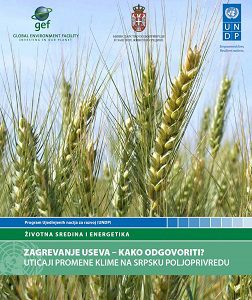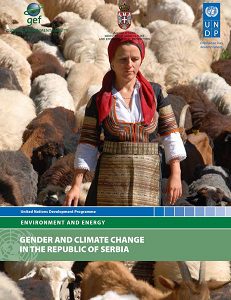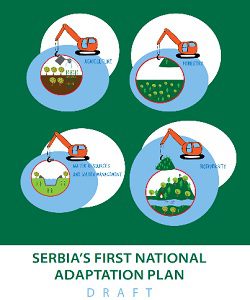Summary for Policymakers – IPCC special report – Climate Change and Land – available in Serbian language
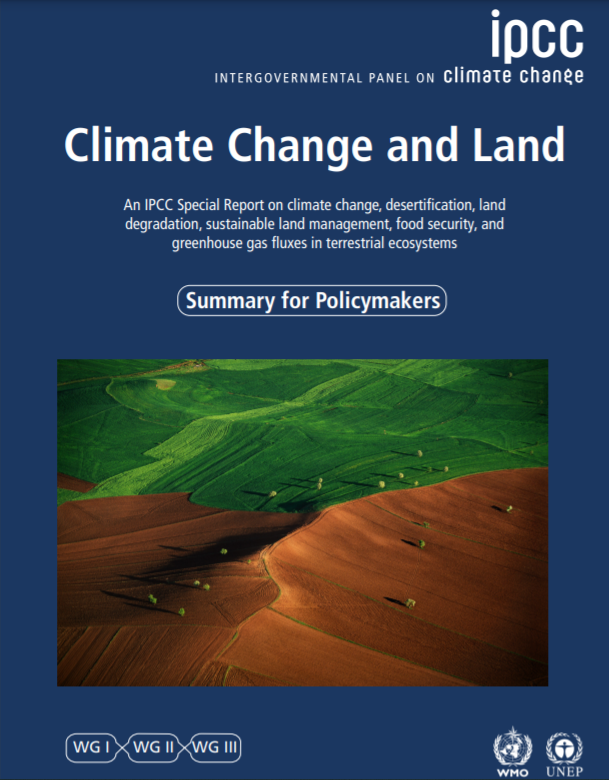
For the capacity building and awareness-raising activities, the Summary for Policymakers (SPM) of IPCC Special Report Climate Change and Land was translated to Serbian language. This report addresses greenhouse-gas (GHG) fluxes in land-based ecosystems, land use and sustainable land management4 in relation to climate change adaptation and mitigation, desertification5, land degradation6 and food security7. This report follows the publication of other recent reports, including the IPCC Special Report on Global Warming of 1.5°C (SR15), the thematic assessment of the Intergovernmental Science-Policy Platform on Biodiversity and Ecosystem Services (IPBES) on Land Degradation and Restoration, the IPBES Global Assessment Report on Biodiversity and Ecosystem Services, and the Global Land Outlook of the UN Convention to Combat Desertification (UNCCD).
Nature-based Solutions for climate change and potential for their implementation in Serbia
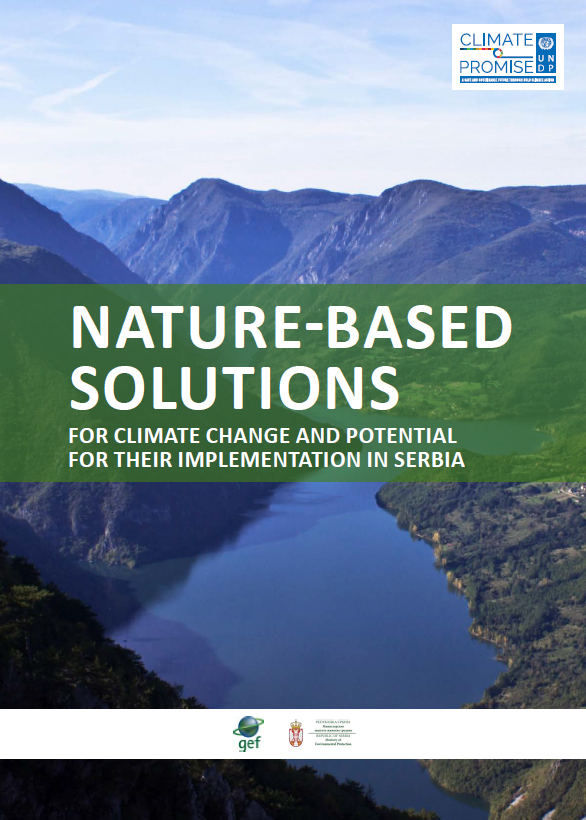
Nature-based solutions are actions to protect, sustainably manage and restore natural or modified ecosystems that address societal challenges effectively and adaptively, simultaneously providing human well-being and biodiversity benefits.
Climate Financing in Serbia
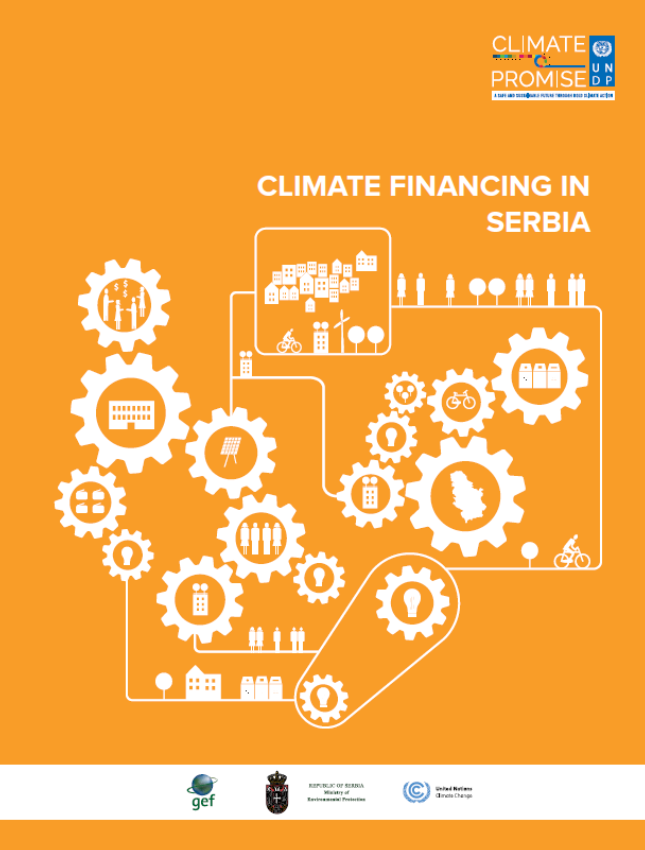
This initial study is aiming to provide better understanding of how much government spends on climate change, assess the visibility of climate change financing in the budgets and provide directions on how to enable better tracking of the climate change related spending to contribute to increased performance of climate change policy agenda.
Assessment of short-lived climate pollutant mitigation in Serbia
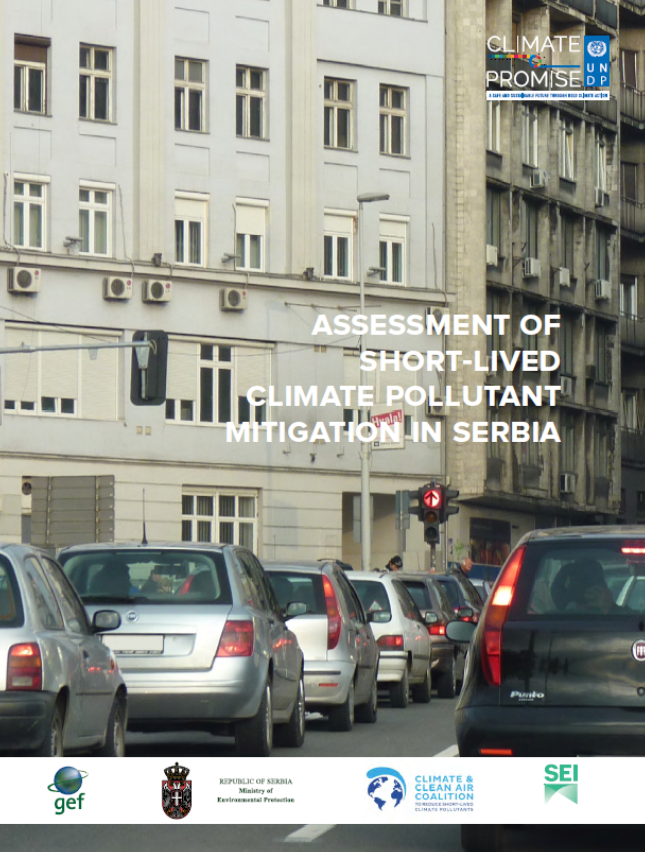
The aim of this document is to provide a first overview of short-lived climate pollutants in Serbia and to provide recommendations as to how actions to reduce SLCPs could be enhanced and increased in Serbia through climate change planning, air quality management and other planning and policy processes.
Initiating the Just Transition in Serbia
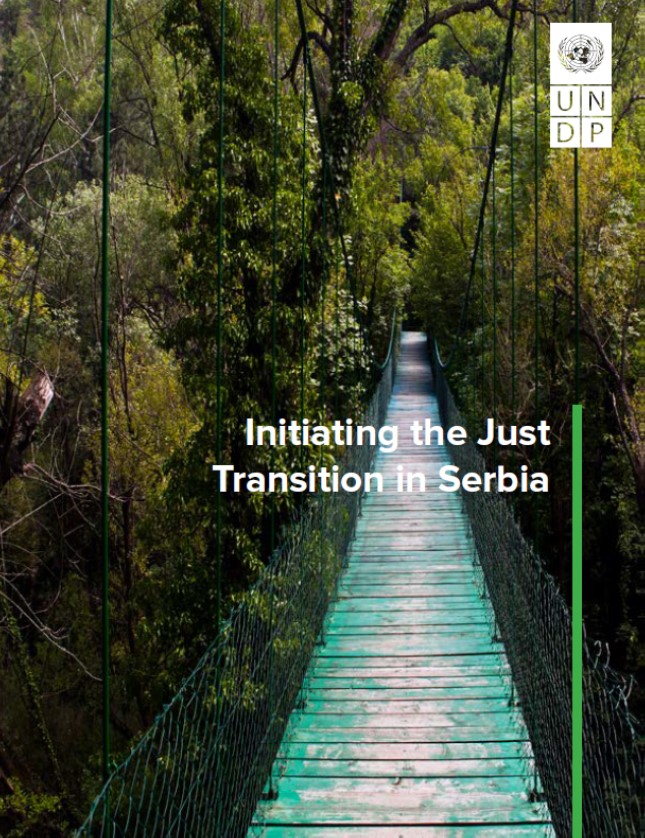
The transition towards low carbon development is ongoing and is expected to pick up speed all over the world.
This report provides baseline analyses for the Just Transition and leaving no one behind in the coal intensive regions and communities in Serbia.
Gender sensitive data and indicators for CBIT project – DRAFT version
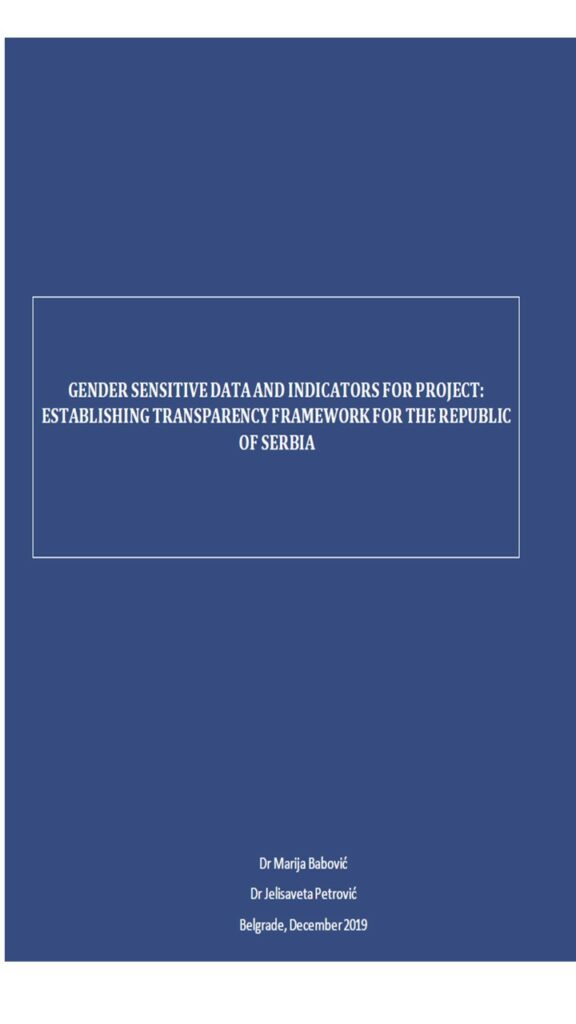
As a precondition for gender sensitive, evidence-based policy making in the area of climate change, establishment of Gender sensitive monitoring framework started.
The objective of this report is to contribute to the gender mainstreaming in reporting on climate change
contributing to the strengthening the ability of the Republic of Serbia to participate actively in addressing the global environmental threat of climate change in gender responsive manner.
In order to achieve this objective, the task was to design the gender mainstreamed monitoring framework on climate change in Serbia with identification of key dimensions, indicators and data sources and to provide recommendation for further gender mainstreaming of designing and monitoring climate change policies.
This is a draft version of the report and expectations are that the final one will be finished until the end of the 2020.
Summary for Policymakers – IPCC special report – Global warming of 1.5°C – available in Serbian language
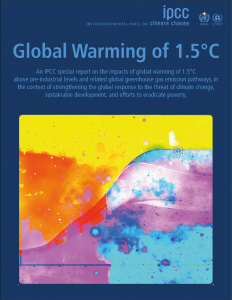 For the capacity building and awareness raising activities, the Summary for Policymakers (SPM) of IPCC Special Report Global warming of 1.5°C was translated to Serbian language. The report presents key findings, based on the assessment of the available scientific, technical and socio-economic literature relevant to global warming of 1.5°C and for the comparison between global warming of 1.5°C and 2°C above pre-industrial levels. The level of confidence associated with each key finding is reported using the IPCC calibrated language. The underlying scientific basis of each key finding is indicated by references provided to chapter elements. In the SPM, knowledge gaps are identified associated with the underlying chapters of the Report.
For the capacity building and awareness raising activities, the Summary for Policymakers (SPM) of IPCC Special Report Global warming of 1.5°C was translated to Serbian language. The report presents key findings, based on the assessment of the available scientific, technical and socio-economic literature relevant to global warming of 1.5°C and for the comparison between global warming of 1.5°C and 2°C above pre-industrial levels. The level of confidence associated with each key finding is reported using the IPCC calibrated language. The underlying scientific basis of each key finding is indicated by references provided to chapter elements. In the SPM, knowledge gaps are identified associated with the underlying chapters of the Report.
Study on socio-economic aspects of climate change in the Republic of Serbia
The consequences of climate change on the global economy and society are already visible. This study focuses on the impact that climate change is having on Serbian society and the economy. The study states that this impact on natural systems and economic sectors in Serbia is very significant and emphasizes the need to adapt to climate change and to reduce greenhouse gas emissions. This is the first time such a study has been conducted in the Republic of Serbia.
Study on Nature Based Climate Solutions in Serbia
Within the UNDP-GEF project “Establishing the Transparency Framework for the Republic of Serbia”, implemented by the Ministry of Environmental Protection with the technical support of the UNDP and financial support of GEF, a first study on harnessing the natural resources as a response to climate change challenges in Serbia was prepared.
The Study on Nature Based Climate Solution in Serbia – harnessing nature’s potentials in response to climate change challenge, is based on a comprehensive analysis conducted with the aim to establish and assess different nature based solutions (NBS), their connection with the climate change, as well as their applicability and importance for the Republic of Serbia. This Study should contribute to the preparation of reports which Serbia is obliged to submit to the UN Framework Convention on Climate Change (UNFCCC) and to the European Union (EU), as well as to the general effect of raising awareness on climate change and to the efforts of the Government of Serbia in the fight against the climate change. The application of NBS could contribute to solving the many societal challenges. These solutions, if implanted on strategical and justified way, could represent a low-risked, low-budgeted and undemanding solutions for various natural catastrophes and effects caused by the climate change.
Climate change impacts on Serbian agriculture
The report Climate change impacts on Serbian agriculture analyzes the impact of observed climate change impacts on agriculture in Serbia and future projections of climate impacts based on different future emission scenarios. Agriculture is particularly vulnerable to climate change, considering that this production is like “a factory under the sky”. In agriculture, plant production (field crops, vegetable, fruit and vine production) is particularly under threat, but also livestock production and fishery, and, by extension, food production.
Analysis of observed climate changes in Serbia and future climate projections
Analysis of the observed climate change in the territory of the Republic of Serbia shows that the temperature rise trend is increasing over time. In January 2019, the Republic Hydrometeorological Service announced that 2018 was the hottest year since records began in the Republic of Serbia (see appendix). In recent decades, changes in climatic conditions have also been conducive to more frequent droughts, while more precipitation can be related to intensive precipitation events. The analysis of future climate changes shows the range of possible future climate conditions depending on the future greenhouse gas emissions and the response of the climate system to these changes. On the territory of the Republic of Serbia, temperatures are expected to continue rising until the end of this century to values that are on average 3 to 5°C higher than the temperatures from mid-last century. Such changes cause an even further destabilisation of the climate system and a progressive change in climatic conditions conducive to the onset of
extreme heat waves, severe drought episodes and an increase in precipitation accumulations during extreme events.
Second National Communication of the Republic of Serbia under the UNFCCC
Republic of Serbia, in October 2017, submitted it’s Second National Communication of the Republic of Serbia under the UNFCCC.
First Biennial Update Report for the Republic of Serbia
The Republic of Serbia submitted its First Biennial Update Report to the UNFCCC in February 2016.
Toolkit for integrating sustainable mobility measures in cities in R. Serbia
“Toolkit for integrating sustainable mobility measures in cities in R. Serbia” has been produced under the framework of the project “Support to Sustainable Transport in the City of Belgrade”, implemented jointly by UNDP, Ministry of Agriculture and Environmental Protection and City of Belgrade.
The is designed to become a guidance document for development and integration of sustainable urban mobility measures and plans. The targeted users of this toolkit are the policy makers, municipal authorities, stakeholders and experts that will work on sustainable urban mobility issues. The content presented in this paper is in line with the EU policy documents and guidelines on sustainable urban mobility and transport, and is focused towards design and implementation of cost effective solutions to achieve sustainable urban mobility goals and principles. The Toolkit underlines the most important steps towards the development of the sustainable mobility measures and plans, identifies appropriate solutions and best practices and provides precise information concerning the technical concepts of sustainable mobility.
Sustainable Transport and GHG Emissions In Belgrade
Report on quantification of the GHG impact of the sustainable transport interventions in the City of Belgrade has been prepared under the framework of the project “Support to Sustainable Transport in the City of Belgrade”, implemented jointly by UNDP, Ministry of Agriculture and Environmental Protection and City of Belgrade.
The main objective of the report is to estimate the city of Belgrade GHG emissions for the period 2006 – 2012, to develop a dynamic baseline emissions scenario for the period 2013 – 2024, and to estimate the direct and indirect mitigation impact of the project components.
The Heating up Of Crops – How to Respond
The publication ’The Heating up Of Crops – How to Respond: Impacts of Climate Change on Agriculture in Serbia’ was jointly published by UNDP and the Ministry of Agriculture and Environmental Protection, with the financial support of the Global Environment Facility.
In the Foreword to the report the Minister of Agriculture and Environmental Protection Snežana Bogosavljević Bošković pointed out: „The findings of this document are based on an expert report entitled ‘Vulnerability assessment and adaptation measures for agriculture in Serbia’. This publication aims primarily at identifying likely problems and suggesting options for their resolution to inform timely and appropriate reaction. The message of both that report and this publication to all those who work in this field, but also to the broadest public is eminently clear: we must continue working globally to reach an effective agreement to cut emissions, whilst at the same time implementing a number of measures to adapt to climate change. These measures entail not only educating and training agricultural workers and stimulating stakeholders to apply adaptation and damage mitigation measures, but also introducing technology initiatives to improve irrigation systems and erosion control measures, as well as improving land use efficiency.
The report is aimed at agricultural advisory bodies, those employed in the sector farmers, and the broadest interested public.
Gender and Climate Change in the Republic of Serbia
First Study on Gender and Climate Change has been prepared within the framework of the project “Serbia’s First
Biennial Update Report”, implemented by the Ministry of Agriculture and Environmental Protection,with technical support of the United Nations Development Programme (UNDP), financed by the Global Environment Facility (GEF).
Serbia’s First National Adaptation Plan
First National Adaptation Plan has been prepared within the framework of the project “Second National Communication to the UNFCCC”, implemented by the Ministry of Agriculture and Environmental Protection,with technical support of the United Nations Development Programme (UNDP), financed by the Global Environment Facility (GEF).

